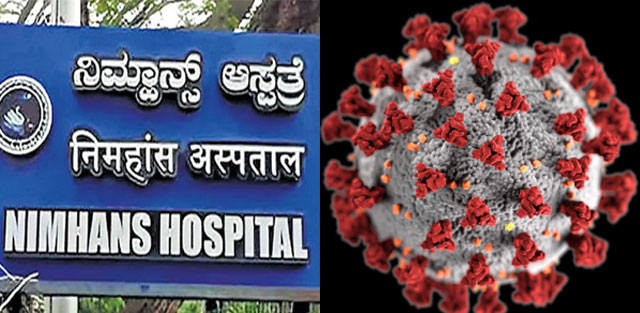Daijiworld Media Network – Bengaluru
Bengaluru, Jul 18: A landmark study conducted by the National Institute of Mental Health and Neurosciences (NIMHANS) has revealed that both COVID-19 infection and vaccination may have direct impacts on the human brain and nervous system in a small percentage of people.
The findings emerged from a detailed investigation led by senior neurologist Dr M Netravathi and her team, and mark one of the most comprehensive Indian studies on COVID-era neurological complications to date.

The research explored how the first wave of COVID-19, along with the mass vaccination drive that followed, affected neurological health. The team studied 3,200 patients who visited NIMHANS with neurological symptoms between March and September 2020. Out of these, 120 patients had tested positive for COVID-19 and later developed nervous system-related disorders.
Confusion, loss of smell among key symptoms
The affected individuals ranged in age from 3 to 84, with the majority being middle-aged (around 49 years old). Many experienced acute fever alongside serious neurological symptoms.
Notable findings among COVID-positive patients include Loss of consciousness or mental confusion in 47% of cases and Loss of smell (anosmia) in 14.2% of cases
The study concluded that the COVID-19 virus itself can directly impact the central nervous system, particularly in patients with high fever and acute illness.
Post-vaccine effects also documented
The NIMHANS team also examined whether COVID-19 vaccines triggered neurological complications. Between May and December 2021, they studied 116 individuals who were admitted to the hospital with neurological symptoms within 42 days of receiving the vaccine.
Of these, 29 people were found to have immune-related neurological disorders, including 27 who received the Covishield vaccine and 2 who received Covaxin.
The onset of symptoms occurred approximately 16 days after the first dose in most cases. Though these figures may raise concerns, the researchers stressed that the overall number of such incidents remains extremely low.
Long COVID: Behavioural and cognitive changes noted
The study also addressed the issue of Long COVID. Several patients reported persistent neurological symptoms even months after recovering from the virus. These included changes in behaviour, loss of interest and motivation and memory impairment and cognitive dullness.
Doctors highlighted that these long-haul symptoms must be tracked and addressed with ongoing care and mental health support.
NIMHANS issues key recommendations
In light of the findings, NIMHANS has made the following recommendations:
• Establish a national or regional neurological registry to monitor long-term effects of both COVID-19 and its vaccines.
• Promote brain health education, including the importance of physical activity, adequate sleep, and a healthy lifestyle.
• Maintain a biological sample repository to support future research into post-COVID neurological outcomes.
• Encourage long-term clinical follow-up for those recovering from COVID-19 or experiencing post-vaccine symptoms.
Low risk, high vigilance
While the research confirms that COVID-19 and its vaccines may trigger neurological issues in rare cases, NIMHANS reassures that these instances are exceptionally limited in number. However, the institute has highlighted the importance of continued scientific monitoring, future research, and public health planning to understand and manage any lasting neurological impact of the pandemic.